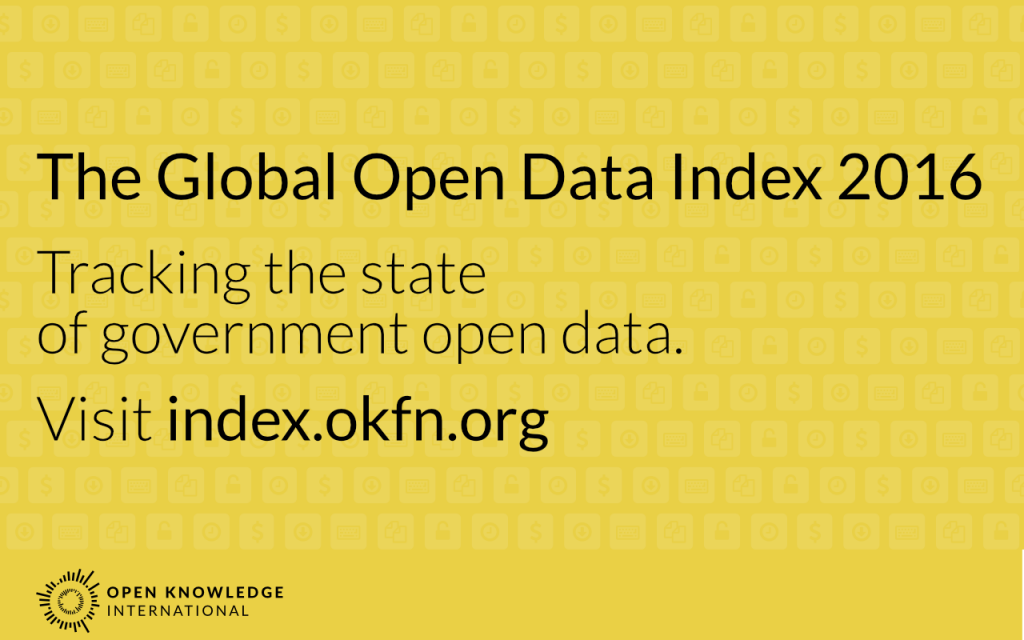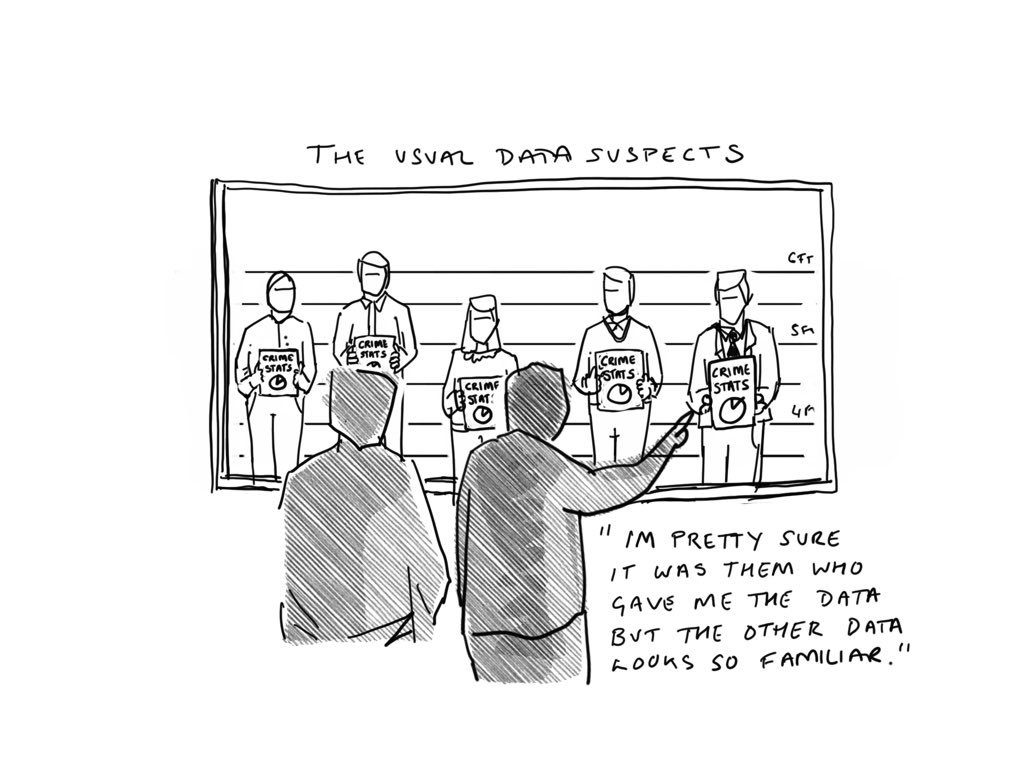We are pleased to present the 4th edition of the Global Open Data Index (GODI), a global assessment of open government data publication. GODI compares national government in 94 places across the 15 key datasets that have been assessed by our community as the most useful for solving social challenges.
For this edition, we received 1410 submitted of datasets, but only 10% of these are open according to the Open Definition. At Open Knowledge International (OKI), we believe it’s important to look further than just the numbers. GODI is not just a benchmark, it can be and should be used as a tool to improve open data publication and make data findable, useful and impactful. This is why we include a new phase, the dialogue phase for this edition.
Measuring the publication of open government data is a constant challenge and while open data has a fixed definition, practices for data publishing that vary widely from one government to government, and even within each government department. The GODI community has faced a number of difficult questions that make assessment harder. ‘Which government agency publishes the data?’ or ‘Is the data published on a portal or a department web page?’ are just two examples.
For this edition of the GODI, we gave attention to the development of the methodology to help us address some of these challenges in the assessment process. Not only did we incorporate feedback from the past GODIs, but we engaged in systematic and detailed in a consultation with the community. In addition, we had a more extensive review phase including an expanded quality assurance stage. We believe that these changes are necessary, and makes our assessment better than ever.

In past years we published GODI as a snapshot in time and didn’t make any change to it after publication. Like any assessment tool, we are not perfect, and we did find ourselves publishing an errata section to accommodate errors. This year we want to be responsive to feedback from the community and government, and give both the opportunity to debate the results. We encourage every user to contest the results for a dataset by publishing a comment about it on our forum. We will be accepting feedback for the next 30 days, and on June 2nd we will re-evaluate the index, correct errors before closing it for submissions until the next edition.
What are we looking to achieve from the dialogue stage?
- Feedback from the full spectrum of stakeholders including government publishers to data users. This helps to improve future editions of the index.
- Help government to understand where the gaps are in their publication of data.
- Help citizens to find the data sets they are looking for.
- Help publishers of data to understand the difficulties of users accessing the data
 Different challenges arise from open data publication today. Over the next couple of weeks, we will be publishing more of our insights and thoughts on these difficulties. Our main findings are:
Different challenges arise from open data publication today. Over the next couple of weeks, we will be publishing more of our insights and thoughts on these difficulties. Our main findings are:
- GODI helps to identify “data gaps.”
- Open data is not easy to find, and governments frequently don’t publish on their portals but across different government websites or split across many pages on one website.
- There is data online, but users find it difficult to access and work with
- Licenses remain an issue in open data publication
You can read the more about GODI findings on the insights page
Learn how to read the results, and download the data for your own research
Please take a look at the new edition of GODI and challenge us by letting us know what you think on the forum!
The official voice of the Open Knowledge Foundation.









